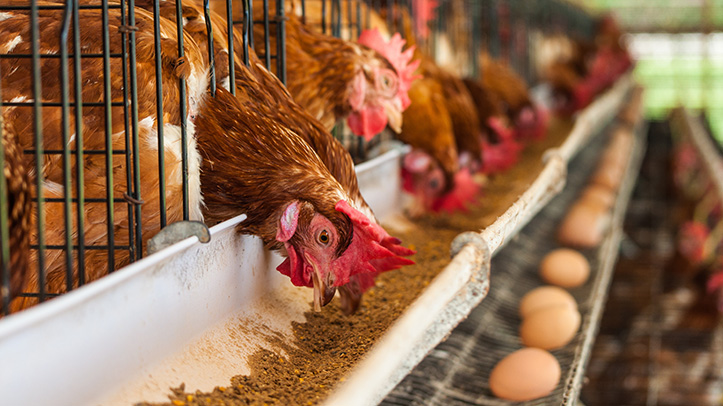Industry urges UK government to reconsider trade deal that puts battery cage eggs on the menu
Ever since the news broke of a UK trade deal with Pacific-rim countries including Mexico, Canada, Peru and Australia, the egg industry has been nervous.
The Comprehensive and Progressive Agreement for Trans-Pacific Partnership (CPTPP) was signed in March and came into effect in July, and is the biggest zero tariff trade deal done by the Government since Brexit.
Now, the British Egg Industry Council, Compassion in World Farming and the RSPCA have joined forces to urge the UK government to reconsider its decision to exclude eggs as a sensitive sector as part of the deal.
The government has ignored industry warnings that the deal allows the import of eggs from countries using conventional battery cage systems that were made illegal in the UK in 2012 as the agreement allows for import tariffs on eggs and egg products to be phased out over a 10-year period.
The danger to British consumers is that egg products could be imported from countries like Mexico, which almost exclusively relies on battery cages for egg production. Such imports would undercut British egg producers who operate to significantly higher standards of animal welfare and world-leading food safety standards under the British Lion Code of Practice.
“It is almost unbelievable that the government would let consumers down like this,” said Mark Williams, BEIC chief executive. “Shoppers will be horrified to learn that eggs in their food products could soon be coming from battery cages more than a decade after they were banned here. To rubber stamp a deal which effectively sanctions the importation of eggs from conventional (battery) caged systems which are outlawed here is not only counter-intuitive, but it also completely undermines the countrywide standards that are adhered to by the UK egg industry. This particularly affects the egg products sector which could see the importation of low welfare eggs, whilst UK egg farmers rightly continue to invest in ensuring higher welfare standards for their birds.
Now the CPTPP deal has been signed, the Government was “complicit in bringing to the UK eggs from hens kept in conventional cages that are well below the welfare standards expected by the British consumer,” Williams added.
Animal welfare charities are equally concerned, and have urged the government to review the tariffs. Dr Nick Palmer, Head of Compassion in World Farming UK, said: “Without adequate tariffs to only allow imported eggs produced to UK standards, the doors will be wide open for powdered and liquid eggs from countries with lower or no animal welfare standards – this is not what UK consumers expect of our government, which promotes high standards of hen welfare, environmental protection and food safety.”
David Bowles, RSPCA Head of Public Affairs, said: “If this deal is agreed, it will not only set our own egg producers at a disadvantage, it will also directly impact RSPCA standards on laying hens, which account for over one in two eggs produced in the UK. The government is starting the gun on a race to the bottom for our animal welfare standards.”
Despite the concerns, it seems likely this deal will proceed as planned. Whether retailers and other major customers of eggs in the UK will resist the urge to buy the cheapest of all possible options remains to be seen.


